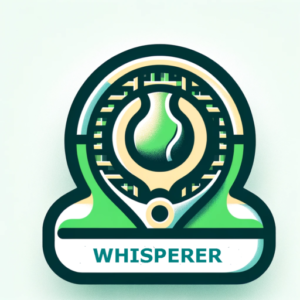“I Get Nervous When People Watch Me Play” — Performance Anxiety
“I Get Nervous When People Watch Me Play” — Performance Anxiety
A pupil says they get very nervous when people watch them play.
They’re worried about being judged, and as a result, they perform below their potential.
What the pupil is experiencing is performance anxiety — a common and completely natural challenge for competitive tennis players.
This anxiety is often triggered by perceived judgment from others. When the spotlight is on, the brain shifts focus away from the task (the game) to the audience.
That internal voice saying, “What if I mess up in front of them?” hijacks attention and undermines execution.
What Really Happens?
It’s easy to assume that nerves or anxiety mean a player isn’t mentally tough — or worse, that something is wrong with them. But that couldn’t be further from the truth.
In most cases, anxiety is a sign that the player cares deeply — about performing well, meeting expectations, and not letting others (or themselves) down. That emotional weight often shows up as nervousness, tension, or fear, especially when people are watching.
But without the right tools, that energy can work against them. Instead of sharpening focus, it scatters it. Instead of fueling confidence, it feeds hesitation.
Here’s what can happen when performance anxiety goes unmanaged:
-
Shallow breathing and increased muscle tension
-
Overthinking simple strokes that should be automatic
-
Loss of focus between points and during key moments
-
Defensive, fear-based play instead of confident shot-making
How To Handle This?
When a player struggles with nerves, the instinct is often to fight the feeling or hope it goes away. But the most effective approach is to train the mind just like any other part of the game.
These mental skills aren’t about pretending pressure doesn’t exist — they’re about learning to stay grounded, focused, and in control, even when nerves are high. With regular practice, these tools help shift attention away from fear and back to performance.
Mental Skills to Reclaim Focus
-
Court Focus
Train attention to stay anchored on the court — the ball seams, the racquet strings, the opponent — rather than the audience. -
Deep Breathing
Use a 4-7-8 pattern: inhale for 4 seconds, hold for 7, exhale for 8. This calms the nervous system and re-centers the mind. -
Pre-Point Rituals
Develop a simple routine before each point — like bouncing the ball before serving, taking a breath, and saying a personal cue. Routines bring control to pressure. -
Positive Self-Talk
Replace “They’re judging me” with “I’m here to compete.” Use language that builds focus, not fear. -
Visualization Practice
Practice mental rehearsal — imagine playing freely and confidently with people watching. This builds familiarity and reduces threat.
Wrap
Feeling nervous under pressure doesn’t mean something is wrong — it means you care deeply about your performance.
The goal isn’t to get rid of those nerves, but to build the tools and routines that help you play your best with them.
With steady mental training, what once felt overwhelming becomes familiar — and pressure transforms from something to fear into something you’re ready to face with confidence.




